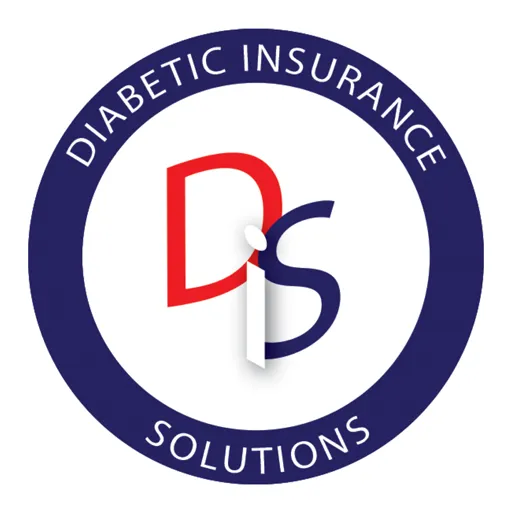![BIPOLAR LIFE INSURANCE RATES [2022 GUIDE]](https://images.leadconnectorhq.com/image/f_webp/q_80/r_1200/u_https://storage.googleapis.com/msgsndr/Ot7Yu4y4ddf8J29mwv9d/media/65bdc72b0e904beaca1d373a.jpeg)
BIPOLAR LIFE INSURANCE RATES [2024 GUIDE]
I’m creating this article to assist senior customers in locating a life insurance provider that will cover them if they have bipolar disorder. One of my friends recently told me how difficult it is for him to find inexpensive coverage after being hospitalised and receiving a diagnosis of bipolar disorder.
The discovery that there are actions you can take to better your condition, he claimed, was the best part of being diagnosed, but the financial and mental toll of not having access to healthcare or life insurance was significant.
Finding the best insurance for seniors with bipolar disorder is difficult because there are so many options available, but these five firms are worth looking into.
Does Bipolar Affect Term Life Insurance Rates
How Does Being Diagnose With Bipolar Disorder Affect Life Insurance
Insuring the lives of those suffering from mental illness
Despite the fact that mental illnesses are highly widespread, such as Bipolar disorder, anxiety disorders, and severe depression, they are still often misunderstood.
Generally speaking, life insurance companies determine your level of risk when it comes to mental health depending on how society at the moment perceives your level of danger (and sometimes it takes a few years for the life insurance companies to catch up).
Life Insurance For People With Mental Illness
Make sure you are working with an agent who is knowledgeable with mental health underwriting if you are seeking for coverage and comparing bipolar quotes and/or manic depression quotes for life insurance.
Underwriters are a few years behind when you apply for life insurance with a mental health condition like bipolar illness. Over all, a standard rate on a term life insurance policy would be the greatest rate you could acquire. The majority of life insurance providers will provide a mid-table rating.
Also, if you have a history of mental illness, your rating will be influenced by your medical history, any previous suicide attempts, and whether you take any medications for mood disorders. Also, the underwriter will request medical records that detail any mental health issues.
Above all, life insurance and mental health are quite likely. Also, it will depend on your physical condition, whether you experience manic episodes, and the intensity of your sadness and anxiety. If you have ever been rejected or applied for life insurance, you can find this in the psychiatric records as well. The MIB typically houses the database.
As long as you continue to pay the premiums, the death benefit MUST be paid once it has been approved.
What Life Insurance Company Provides Coverage for Bipolar 1
Bipolar 1 Vs. Bipolar 2 In Regards To Life Insurance
Several, but first…
Bipolar 1 and 2 applicants may be classified differently by some life insurance providers. These are the businesses you want to work with since they demonstrate that they are knowledgeable about the illness and its differences.
You might have to choose a guaranteed issue life insurance policy over term life insurance if you also have other medical issues.
Life Insurance Bipolar 2
Yet, employers who lump applicants with Bipolar 1 and 2 into the same category show a lack of expertise and comprehension of the condition. Since life insurance firms are reluctant to engage with applicants who have problems they are uncertain about, these businesses will charge you greater rates.
Best Companies For Life Insurance For Bipolar
WHAT WILL LIFE INSURANCE COMPANIES WANT TO KNOW
Naturally, each life insurance provider will want to learn more about your health. Most crucial, the greatest way to acquire the best rate is to reassure them that your disorder is under control.
For the questions that will be posed to you, preparation is essential. Conventional life insurance providers prefer to insure applicants who are forthcoming with accurate information during the application and underwriting processes. See the list of potential inquiries below:
Are you on medication?
What kind of medication are you taking?
Do you take your medication exactly as prescribed by your doctor?
Have you recently attempted suicide?
Have you had any hospitalizations as a result of your Bipolar disorder?
How stable is your personal life?
How are you treating your disorder?
Physical health?
Medical records?
Medical condition?
These inquiries will enable life insurance firms to assess whether or not you have control over your disorder. When submitting an application for whole life insurance and gathering the top bipolar rates, make sure you are able to provide sufficient answers to these questions.
Be truthful at all times with your insurance broker.
He/she represents YOU! If you provided accurate and truthful information, your agent may be able to place you in a standard rate category and provide you with accurate insurance estimates.
Bipolar Disorder Life Insurance Underwriting
HERE ARE SOME RULE OF THUMB RATING CLASS FOR BIPOLAR DISORDER
Mild –Steady, maybe taking psychiatric medications, but not MAO inhibitors or antipsychotics. In the past three years, there have been no suicide attempts or thoughts. – Regular
Moderate – Mental medication dosages have increased in the last 12 months, but there have been no recent suicidal thoughts. Table 2
Severe – Usage of an MAO inhibitor and adjustments to drug doses are severe. – Table 4
BIPOLAR, SUICIDE AND LIFE INSURANCE
The potential for suicide is one of the reasons insurance companies are hesitant to cover persons with bipolar disorder. Customers should also be aware that many, if not most, life insurance policies are void in the event of suicide, regardless of whether they are menopausal or not.
In the recent past, it had been nearly hard to get a term of life that was not immediately voidable through suicide.
Due in part to the volume of litigation that has occurred around this circumstance, things are a little more flexible now.
Usually speaking, the beneficiaries of an insured individual who commits suicide within the first two decades may receive a refund of any premiums paid, but not the actual insurance policy payout.
Yet after two years, the entire benefit is repaid. The two-year rule isn’t automatic, and you’ll need to look around and spend more to find a coverage that doesn’t exclude suicide. Of course, this is ONLY IF SUICIDE IS NOT AN EXPLICIT EXCLUSION.
I apologise; I realise that the majority of readers may find this subject to be upsetting and disturbing. Nonetheless, this is a critical problem with bipolar life insurance coverage that cannot be disregarded.
PAST SUICIDE ATTEMPT AND THE IMPACT ON LIFE INSURANCE,
WILL I BE REJECTED FOR LIFE INSURANCE?
Bipolar disease typically prevents sufferers from purchasing life insurance due to prior suicide attempts or suicidal ideation. That is among the most prevalent exclusions for bipolar life insurance coverage.
My personal opinion is that you should purchase this form of coverage, despite the additional cost, if you can find life insurance that does not have a suicide exclusion. Your beneficiary will not receive the face value of the death benefit if you commit suicide within the first two years of the policy’s operation.
Several studies indicate that individuals with bipolar disorder have a 15% suicide incidence. This rate is around 30 times greater than the average for the population.
Both seeking this coverage and the insurance company’s efforts to stop it are wise moves on both sides of the equation.
Denied Life Insurance Bipolar
WHY IS IT TAKING SO LONG FOR LIFE INSURANCE COMPANIES TO COME AROUND?
It frequently takes years for life and mental health insurance firms to update their medical underwriting to meet current standards.
Because of this, life insurance companies might take a little longer to adjust their premiums to reflect the fact that bipolar disorder is becoming increasingly curable.
Obtaining life insurance while you have bipolar disorder can be challenging, just like when you have epilepsy. In particular, if you are aware that your illness is not life-threatening.
Is Bipolar Disorder A Pre-Existing Condition For Life Insurance
WHAT’S THE MAIN CAUSE OF BIPOLAR ILLNESS
Following are some elements that could raise the risk of developing bipolar disorder or serve as a catalyst for the first episode:
Combining bipolar disorder with a first-degree comparable, such as a parent or sibling.
Times of extreme stress, such as when a loved one dies or another catastrophic event occurs.
Alcohol or abusing alcohol.
Bipolar Diagnosis and Life Insurance
CAN YOU CREATE A BIPOLAR DISORDER
Late adolescence or the beginning of adulthood are common times for the onset of bipolar illness. While some people may develop symptoms later in life, some people have their first symptoms as children. Beginnings of bipolar disorder are difficult to detect.
Life Insurance for Bipolar Sufferers
HAVE YOU BEEN BORN WITH BIPOLAR DISORDER OR CAN YOU CREATE IT
The conclusion is that if you have bipolar disorder, you were probably born with a propensity for this disorder. But, long-term life events and/or upbringing might also cause the disease to start.
DIFFERENCE BETWEEN BIPOLAR DISORDER AND SCHIZOPHRENIA
What are the effects of bipolar disorder?
Can you have bipolar disorder and schizophrenia?
Obviously, you don’t need to be informed what your condition is. Finding out more about how your diagnosis might be categorised by your life insurance policy, though, can be useful.
It will be easier for you to manage the conversation with your underwriter if you keep track of how your symptoms compare to or diverge from those mentioned below.
The term “schizophrenia,” which translates to “divided mind,” actually refers to a disruption of the normal harmony between emotions and thought. Schizophrenia is a chronic condition that needs ongoing care. The Diagnostic and Statistical Manual of Mental Disorders (DSM-5) describes schizophrenia as a condition with one or more probable symptoms in more detail. It is the most recent tool for diagnosing mental illnesses. For instance, the person might have hallucinations, delusions, difficulty thinking or speaking clearly, as well as other undesirable behaviours or emotional states. Although this typically lasts for a month or longer, effective treatment can also markedly reduce the length and intensity of these symptoms.
Bipolar illness. The mood swings associated with bipolar disorder, also known as manic-depressive disorder, range from the lows of melancholy to the highs of mania. When a person with bipolar disorder experiences depression, they may feel extremely dejected or hopeless and lose interest in or enjoyment from most activities. He or she can feel joyful and energised after the mood swings in the other direction. These emotional ups and downs can occur sporadically throughout the year or often throughout the day. Maniac and depressive symptoms can occasionally coexist due to bipolar disorder. Although though bipolar disorder is a challenging, chronic illness, those who have it can manage their moods by adhering to a treatment plan. Bipolar disorder may typically be treated with medication and therapy.
Life Insurance For Someone With Bipolar
THE DIAGNOSIS
Of fact, both schizophrenia and bipolar disorder have the potential to seriously damage a person’s life. Individuals who have one of these disorders may struggle to maintain supportive relationships, maintain employment, or take care of their physical well-being.
Certain people may be more likely to use dangerous or suicidal coping mechanisms. These factors contribute to the difficulty life insurance firms have in providing coverage plans for all of these more serious circumstances.
The adage “you can’t fix what ain’t broke” applies here. But how are you supposed to mend something if you can’t see what’s wrong?
Above all, receiving a mental health diagnosis can be powerful once you know there is a problem. Click here for additional details on how to.
How to control your mood swings
Depending on the type of incident, different signs and symptoms of bipolar illness may appear (i.e., depressive or manic). Each occurrence represents a dramatic departure from a person’s typical behaviour and emotional state.
IN THE “HIGHS” (MANIA)
Possible signs of a manic episode include:
Euphoria, odd exhilaration, or a positive mood
Talking too swiftly or incessantly
Need less sleep than usual while maintaining a high level of energy
Feeling hyper, anxious, irritable, or just distracted
Dangerous actions, such as extravagant spending, impromptu sexual encounters, or poor business decisions
THOSE “LOWS” (MELANCHOLY)
Bipolar depression symptoms that could be signs of a manic episode include:
No longer interested in hobbies you used to love
Decline in vigour
Either having trouble sleeping or sleeping too little
Hunger-eating too much or too little-changes
Inability to focus, remember, or draw conclusions
Having suicidal or fatal thoughts
RISK FACTORS OF BIPOLAR DISORDER
Family with the Disease – If you have a parent or sibling who has bipolar disorder, you may be more likely to get the mood condition yourself. In early adulthood or throughout the teenage years, symptoms may first appear.
Moreover, all forms of onset are 25 years old. According to one study, there is a one-third risk that children of parents with severe mental illness will experience a serious mental illness by the time they reach adulthood.
Also, researchers have found that your risk of developing the disease increases with your parent’s age of diagnosis.
But we are aware that genetics is not the only factor. Although bipolar disease is highly heritable, studies of identical twins have indicated that the two twins don’t always experience the disorder.
This indicates that environmental variables may also influence the chance of developing the illness.
Can You Get Life Insurance With Anxiety And Bipolar
HIGH STRESS
Those who have through traumatic experiences are more likely to develop bipolar disorder. The likelihood of developing bipolar disorder in the near future can be increased by childhood conditions including sexual or physical abuse, neglect, the death of a parent, or other traumatic occurrences.
Depressive or manic episodes can also be brought on by extremely stressful situations like quitting your job, moving, or experiencing a loss in your family.
Although substance abuse doesn’t cause the illness, it can exacerbate mood swings or quicken the onset of symptoms. Occasionally taking drugs can start a manic or depressed episode.
Yet, a person may need to detox from substances before a doctor can give them a diagnosis of bipolar illness because chemical usage can cause psychosis.
Life Insurance Policies For People With Bipolar
GENDER AND BIPOLAR DISORDER
Gender: Both men and women can suffer from bipolar disorder, but women are three times more likely to have fast mood swings. In comparison to men, they are also more prone to undergo mixed and depressed episodes of the condition.
If you’re not sure if you have a chance of developing bipolar disorder, you might ask yourself these questions:
Have you have traumatic experiences as a child?
recent traumatic experiences or lack of sleep?
Have you ever experienced abrupt mood swings after consuming alcohol or drugs?
Severe mood swings affected your relationships, daily responsibilities, or even your job?
You can still discuss your worries with your doctor or a mental health professional and have a diagnostic exam even if you answered “no” to the questions.
Consult a specialist about the hazards and the actions that can help your child retain excellent mental health if you have the disease and are concerned about the risks for your own children.
CONCLUSION
Most importantly, keep in mind that bipolar disorder is very treatable. Drugs, counselling, and other therapies, among others, can be quite effective at controlling symptoms and sluggishing abrupt mood swings.
Speak with someone who can set you on the correct path to a healthier way of living right now.
HOW CAN I GET AFFORDABLE LIFE INSURANCE WITH BIPOLAR DISORDER
There are various things you may do to get life insurance at more reasonable rates.
Have a look at the list below when it comes to insurance for people with mental disabilities:
Improve Overall Health —This is crucial for anyone requesting life insurance. Make an effort to eat healthy and exercise frequently to perform well on your physical examination.
Quit Smoking — Smokers typically pay 2-3 times more for life insurance. You don’t want to offer insurance companies another reason to classify you as a high-risk candidate if you already have bipolar disorder.
Compare Quotes —Those who have bipolar disorder should pay particular attention to this. You can get the most affordable solutions by surfing around organisations because costs differ so much amongst them.
Hire An Independent Insurance Agent — Working with an agent might be a great investment. They can assist you in comparing prices. They should also be aware of which businesses are more understanding of people who have bipolar disorder.
Please feel free to get in touch with us at DiabeticInsuranceSolutions.com 855-468-8900 if you have any queries.
CLICK HERE for more details on mental illness.
Conclusion
The cost of life insurance is less expensive than you would imagine. In reality, some businesses provide discounts to customers who suffer from mental diseases like bipolar disorder. Request a quote right away to find out how much the condition will lower your rate. We’ll work with you to choose a choice that offers affordable premiums without sacrificing benefits or coverage. Also, we’ll provide you with free educational resources about what it’s like to live with bipolar disease so you may be as informed as possible before making any commitments regarding your future financial stability.



